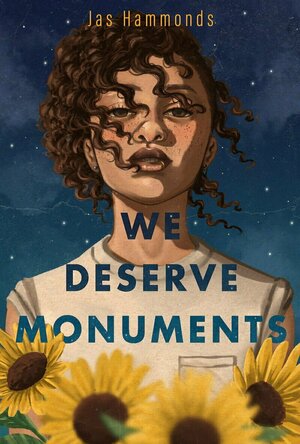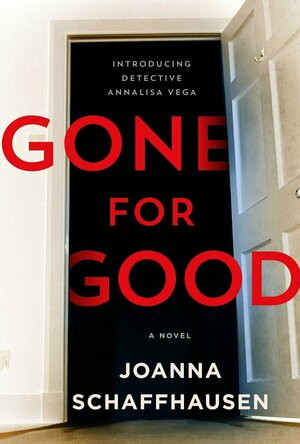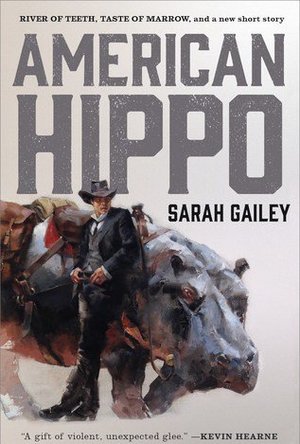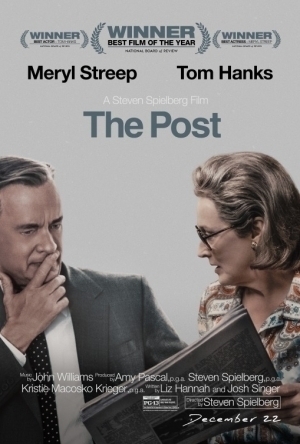Search
Search results
Bob Mann (459 KP) rated Fast & Furious Presents: Hobbs & Shaw (2019) in Movies
Sep 28, 2021
Good popcorn nonsense.
“Remember who we are. The Shaw family. We never, never, never give up.”
(That title is especially for my friends the Shaw family!).
Well, the patchy British summer’s just about up, and autumn’s chilly fingers are touching up the UK. And yet I still hadn’t seen the summer hit “Hobbs and Shaw”! Until last night.
It’s utter nonsense of course, like most of the “Fast and Furious” films, but I have to admit it’s done with some tongue in cheek style.
The plot
A vicious cyber-soldier, Brixton (Idris Elba) tries to steal a deadly virus but is thwarted by brave MI6 agent Hattie (Vanessa Kirby). To help recover the virus, Deckard Shaw (Jason Statham) is recruited in London by CIA agent Loeb (Rob Delaney, the “non-super” hero Peter in “Deadpool 2“). In an interesting piece of related casting, the Eteon Director (Champ Nightengale – LoL, a cameo for someone far more famous) recruits Luke Hobbs (Dwayne Johnson) in LA as a part of the team.
Both agents know they are heading for trouble… but do they really appreciate how much the pair hate each other’s guts?
The trail leads from London to the Ukraine to (a very picturesque) Samoa in a race against time to both defeat the undefeatable Brixton and save Hattie: now a ticking time bomb of global destruction. And Hattie has relations!
Absurd stunts.
As a “Fast and Furious” film there are of course some truly absurd car stunts involved and – unlike the Mission Impossible films – you are never quite sure what is “real” and what is CGI generated. Which is a shame.
For me, the gold standard for chases remains Tom Cruise‘s chase through Paris in “Mission Impossible: Fallout“. Here, the car chase through London – whilst impressive – never quite reaches the seat clenching tension of MI6.
And a final stunt with a helicopter is – I’m sorry – just plain ridiculous. If a chopper can partially lift 5 x load then why can’t it completely lift 1 x load. Give me a break!
To round things off, there is one of the most unbelievable “100% survival of a car crashing off a cliff” scenes in movie history!
Acting
The acting is largely from the Arnie Swartzenegger school, with Johnson and Statham giving it the old shtick. Dwayne Johnson may be one of Hollywood’s most bankable stars (the boy has done REAL good for himself), but he can’t do serious acting. His “pathos” scenes with his daughter (a vibrant Eliana Sua) are excruciating.
Dropping in as class acts are Helen Mirren as the elder Shaw and the excellent Vanessa Kirby as Hattie. Kirby gets a lot more to get her teeth into than in the last Mission Impossible movie, and is really very good. Mirren is rather too posh to be the incarcerated East End con, but is a fun turn nevertheless.
Also excellent, as always, is Eddie Marsan as the key scientist. Marsan really turns in a splendid performance in every film he’s in. He’s top of “Division 2” in my books. Never the star, but always starring.
Mexican actress Eiza González (from “Baby Driver“) also crops up as an unfeasibly good-looking Russian femme fatale.
“I hate you”. “No, I hate you”. Blah, blah, blah.
Writers Chris Morgan and Drew Pearce do a good job at keeping the script light and fluffy. The animosity between Hobbs and Shaw is played to 110%, and for me the interplay frankly became a bit tiresome. But it’s a fun-enough film to entertain, although it’s bladder-testing running time of 2 hours 17 minutes is at least 30 minutes too long. There is a natural Ukraine-based finale, but it’s not taken, and the film goes on… and on… and on…. and on. Enough already.
I’ve said many times before that comedies shouldn’t last more than 90 minutes, and although an “action film” this is fundamentally a comedy and the rule should apply. It would have been a much better film if it was compacted.
Sexism diverted.
I did criticize “Fast and Furious 8” for scenes that brazenly objectified women. And there was a moment – just one, fortunately – with a gyrating bikini-clad beauty – where I thought “uh, oh” – this franchise has not moved with the times.
But actually, this was the only scene where I thought that. Cinema has moved along massively in the last two years, driven by the “Times Up” movement. Here the women are all given pretty leading “kick-ass” roles, and they generally show the muscle-bound morons up, often saving their arses.
Final Thoughts.
It’s summer popcorn nonsense, but its well done popcorn nonsense. Probably not a film high on my list of films I want to see again, but as an entertainment vehicle it was not too shabby.
(That title is especially for my friends the Shaw family!).
Well, the patchy British summer’s just about up, and autumn’s chilly fingers are touching up the UK. And yet I still hadn’t seen the summer hit “Hobbs and Shaw”! Until last night.
It’s utter nonsense of course, like most of the “Fast and Furious” films, but I have to admit it’s done with some tongue in cheek style.
The plot
A vicious cyber-soldier, Brixton (Idris Elba) tries to steal a deadly virus but is thwarted by brave MI6 agent Hattie (Vanessa Kirby). To help recover the virus, Deckard Shaw (Jason Statham) is recruited in London by CIA agent Loeb (Rob Delaney, the “non-super” hero Peter in “Deadpool 2“). In an interesting piece of related casting, the Eteon Director (Champ Nightengale – LoL, a cameo for someone far more famous) recruits Luke Hobbs (Dwayne Johnson) in LA as a part of the team.
Both agents know they are heading for trouble… but do they really appreciate how much the pair hate each other’s guts?
The trail leads from London to the Ukraine to (a very picturesque) Samoa in a race against time to both defeat the undefeatable Brixton and save Hattie: now a ticking time bomb of global destruction. And Hattie has relations!
Absurd stunts.
As a “Fast and Furious” film there are of course some truly absurd car stunts involved and – unlike the Mission Impossible films – you are never quite sure what is “real” and what is CGI generated. Which is a shame.
For me, the gold standard for chases remains Tom Cruise‘s chase through Paris in “Mission Impossible: Fallout“. Here, the car chase through London – whilst impressive – never quite reaches the seat clenching tension of MI6.
And a final stunt with a helicopter is – I’m sorry – just plain ridiculous. If a chopper can partially lift 5 x load then why can’t it completely lift 1 x load. Give me a break!
To round things off, there is one of the most unbelievable “100% survival of a car crashing off a cliff” scenes in movie history!
Acting
The acting is largely from the Arnie Swartzenegger school, with Johnson and Statham giving it the old shtick. Dwayne Johnson may be one of Hollywood’s most bankable stars (the boy has done REAL good for himself), but he can’t do serious acting. His “pathos” scenes with his daughter (a vibrant Eliana Sua) are excruciating.
Dropping in as class acts are Helen Mirren as the elder Shaw and the excellent Vanessa Kirby as Hattie. Kirby gets a lot more to get her teeth into than in the last Mission Impossible movie, and is really very good. Mirren is rather too posh to be the incarcerated East End con, but is a fun turn nevertheless.
Also excellent, as always, is Eddie Marsan as the key scientist. Marsan really turns in a splendid performance in every film he’s in. He’s top of “Division 2” in my books. Never the star, but always starring.
Mexican actress Eiza González (from “Baby Driver“) also crops up as an unfeasibly good-looking Russian femme fatale.
“I hate you”. “No, I hate you”. Blah, blah, blah.
Writers Chris Morgan and Drew Pearce do a good job at keeping the script light and fluffy. The animosity between Hobbs and Shaw is played to 110%, and for me the interplay frankly became a bit tiresome. But it’s a fun-enough film to entertain, although it’s bladder-testing running time of 2 hours 17 minutes is at least 30 minutes too long. There is a natural Ukraine-based finale, but it’s not taken, and the film goes on… and on… and on…. and on. Enough already.
I’ve said many times before that comedies shouldn’t last more than 90 minutes, and although an “action film” this is fundamentally a comedy and the rule should apply. It would have been a much better film if it was compacted.
Sexism diverted.
I did criticize “Fast and Furious 8” for scenes that brazenly objectified women. And there was a moment – just one, fortunately – with a gyrating bikini-clad beauty – where I thought “uh, oh” – this franchise has not moved with the times.
But actually, this was the only scene where I thought that. Cinema has moved along massively in the last two years, driven by the “Times Up” movement. Here the women are all given pretty leading “kick-ass” roles, and they generally show the muscle-bound morons up, often saving their arses.
Final Thoughts.
It’s summer popcorn nonsense, but its well done popcorn nonsense. Probably not a film high on my list of films I want to see again, but as an entertainment vehicle it was not too shabby.
Ali A (82 KP) rated We Deserve Monuments in Books
Dec 8, 2022
Trigger Warnings: Generational trauma, racism, mentions of alcoholism and verbal abuse, homophobia, character death
Avery Anderson’s life is uprooted when her family moves from Washington DC to Bardell, Georgia her senior year of high school to look after her maternal grandmother, Mama Letty, who’s in her final stages of cancer. Avery only remembers one visit with her grandmother, cut short by an argument, when she was very young. Bardell is a small town with only two high schools - one public, and one private, the latter being founded by one of the town’s many racist forefathers. Avery quickly gets adopted into the friendship of two girls: Simone Cole, Mama Letty’s next door neighbor, and Jade Oliver, a descendent of one of Bardell’s oldest families.
Avery’s relationship with her grandmother is far from easy. Mama Letty isn’t easy to get to know, especially when she only answers questions in grunts and gruffs. It also doesn’t help that the tension between her mother and grandmother is so thick you can cut it with a knife, but both of them are refusing to address it.
Avery sets out on trying to mend the broken and split relationship but there are events many are refusing to talk about. It isn’t until Mama Letty begins to open up to Avery about her past, that Avery is able to piece together her family history that was shaped by the town’s racist history. As more events come out of the shadows, Avery must decide if finding out the truth is worth damaging the relationships she’s built in Bardell, or if some things are better left buried.
I absolutely loved and adored this book very much. Jas Hammonds masterfully tells this layered story of a young woman finding out about her family’s past within a novel that’s about generational trauma and racism. The amount of trauma the three generations of women must peel back is constantly met with tension. The story is hard to read at times, especially when you’re reading about Mama Letty’s past and the town’s racism, but this book wrapped its arms around me and refused to let go until the Harding family’s story is told.
Alongside Avery finding out about her family’s past, the relationship between Simone and Avery grows deeper and the way the two of them find their footing to their sexuality was well written. I wish I had grown up with a place like The Renaissance where you were accepted no matter what.
Overall, this novel is going to be one I’m going to talk about for months to come. It was beautiful, heartbreaking, hopeful, and captivating. Any readers who love reading about family and their dynamics, relationships, and hope will really enjoy this book.
*Thank you Roaring Brook Press and NetGalley for an electronic version of this book in exchange for an honest review
Avery Anderson’s life is uprooted when her family moves from Washington DC to Bardell, Georgia her senior year of high school to look after her maternal grandmother, Mama Letty, who’s in her final stages of cancer. Avery only remembers one visit with her grandmother, cut short by an argument, when she was very young. Bardell is a small town with only two high schools - one public, and one private, the latter being founded by one of the town’s many racist forefathers. Avery quickly gets adopted into the friendship of two girls: Simone Cole, Mama Letty’s next door neighbor, and Jade Oliver, a descendent of one of Bardell’s oldest families.
Avery’s relationship with her grandmother is far from easy. Mama Letty isn’t easy to get to know, especially when she only answers questions in grunts and gruffs. It also doesn’t help that the tension between her mother and grandmother is so thick you can cut it with a knife, but both of them are refusing to address it.
Avery sets out on trying to mend the broken and split relationship but there are events many are refusing to talk about. It isn’t until Mama Letty begins to open up to Avery about her past, that Avery is able to piece together her family history that was shaped by the town’s racist history. As more events come out of the shadows, Avery must decide if finding out the truth is worth damaging the relationships she’s built in Bardell, or if some things are better left buried.
I absolutely loved and adored this book very much. Jas Hammonds masterfully tells this layered story of a young woman finding out about her family’s past within a novel that’s about generational trauma and racism. The amount of trauma the three generations of women must peel back is constantly met with tension. The story is hard to read at times, especially when you’re reading about Mama Letty’s past and the town’s racism, but this book wrapped its arms around me and refused to let go until the Harding family’s story is told.
Alongside Avery finding out about her family’s past, the relationship between Simone and Avery grows deeper and the way the two of them find their footing to their sexuality was well written. I wish I had grown up with a place like The Renaissance where you were accepted no matter what.
Overall, this novel is going to be one I’m going to talk about for months to come. It was beautiful, heartbreaking, hopeful, and captivating. Any readers who love reading about family and their dynamics, relationships, and hope will really enjoy this book.
*Thank you Roaring Brook Press and NetGalley for an electronic version of this book in exchange for an honest review
Kristy H (1252 KP) rated Gone for Good in Books
Aug 26, 2021
An excellent mystery where a cold case intersects with a new murder
In the 1990s, the Lovelorn Killer killed seven women and disappeared. The last known victim was Katherine Duffy, the wife of a police officer, who was killed on Halloween. After twenty years, many wonder if he's gone for good. But a group of amateur online sleuths, known as the Grave Diggers, don't think that. They take on cold cases and investigate them. One of these Diggers is Grace Harper, a grocery store worker. Grace is sure the Lovelorn Killer is out there, blending into the same neighborhoods he hunted in. Detective Annalisa Vega's father--also a cop--was partnered with Katie Duffy's husband back in the day. Her murder was a defining moment in Annalisa's life. When Annalisa is called to the scene of Grace's murder and realizes she was killed in a similar manner to the Lovelorn Killer, she wonders if the killer is back. Investigating will mean dredging up Annalisa's childhood memories and giving everything she has to catch a murderer.
"With each passing year, the Lovelorn Killer recedes into history and people shrug at the mention of his name. Looks like he's gone for good."
This is an excellent mystery--honestly no surprise when it's by Schaffhausen. I love her Ellery/Reed series, and I'm excited that there's a new series from her. This is a dark read and Annalisa's personal ties to the case and investigation only strengthen this book. It's wonderful reading a story with a strong female detective (and a female boss). Annalisa is a new detective, struggling with the fact that she must work with her ex-husband, Nick Carelli, the established detective on the force. But she doesn't let that, or anything, stop her. Schaffhausen is so good at writing a police procedural; she writes about the processes and force dynamics so well. You feel a part of the investigation and Annalisa's police family superbly. Same with the city of Chicago. She captures the city perfectly. As someone with Chicago ties, this book is so Chicago. I cannot wait for my parents, who grew up in the Chicago suburbs, to read it.
Told from Annalisa's perspective and interspersed with excerpts from Grace's journal, GONE FOR GOOD is tense and crackling with suspense. It's a fast moving read that keeps you guessing from the very beginning, which opens with Grace's death. Yet Grace always feels like another living character in the book, and she's integral to the plot. This is truly a dark read, with a lot of death and murder, and a "bad guy" who is quite bad. I'm always impressed at how Schaffhausen can write stories that permeate with evil and tension.
Overall, I loved everything about this book. The unification of old and new cases and way the Internet sleuths added to the cases. How Annalisa's personal life intertwined with the investigation. GOOD is well-written and keeps you guessing until the very end. I'm looking forward to the next book in the series. 4.5 stars.
I received a copy of this book from Minotaur Books and Netgalley in return for an unbiased review.
"With each passing year, the Lovelorn Killer recedes into history and people shrug at the mention of his name. Looks like he's gone for good."
This is an excellent mystery--honestly no surprise when it's by Schaffhausen. I love her Ellery/Reed series, and I'm excited that there's a new series from her. This is a dark read and Annalisa's personal ties to the case and investigation only strengthen this book. It's wonderful reading a story with a strong female detective (and a female boss). Annalisa is a new detective, struggling with the fact that she must work with her ex-husband, Nick Carelli, the established detective on the force. But she doesn't let that, or anything, stop her. Schaffhausen is so good at writing a police procedural; she writes about the processes and force dynamics so well. You feel a part of the investigation and Annalisa's police family superbly. Same with the city of Chicago. She captures the city perfectly. As someone with Chicago ties, this book is so Chicago. I cannot wait for my parents, who grew up in the Chicago suburbs, to read it.
Told from Annalisa's perspective and interspersed with excerpts from Grace's journal, GONE FOR GOOD is tense and crackling with suspense. It's a fast moving read that keeps you guessing from the very beginning, which opens with Grace's death. Yet Grace always feels like another living character in the book, and she's integral to the plot. This is truly a dark read, with a lot of death and murder, and a "bad guy" who is quite bad. I'm always impressed at how Schaffhausen can write stories that permeate with evil and tension.
Overall, I loved everything about this book. The unification of old and new cases and way the Internet sleuths added to the cases. How Annalisa's personal life intertwined with the investigation. GOOD is well-written and keeps you guessing until the very end. I'm looking forward to the next book in the series. 4.5 stars.
I received a copy of this book from Minotaur Books and Netgalley in return for an unbiased review.
Goddess in the Stacks (553 KP) rated American Hippo (River of Teeth, #1-2) in Books
Jan 30, 2019
I actually read these volumes as separate books, so I have two separate reviews here.
River of Teeth (Part 1):
I somehow missed that this was a novella, every time I looked at it online. It wasn't until I checked it out from the library and was shocked at how small it was that I made that discovery. It was a welcome one, since I checked out seven other books that day, and finding something short was a relief!
And I AM SO GLAD I finally read this, because it's AMAZING. It opens on Winslow seducing a federal agent, and quickly moves to him gathering up a crew to drive feral hippos out of a marsh in Louisiana. I was expected a fun hippo-cowboy romp, and I got that - what I wasn't expected was strong, deadly women, a bisexual male hero, a nonbinary love interest, and hippo steeds. I don't know why hippo steeds didn't occur to me - it's not like they could wrangle hippos from atop horses! There is so much goodness packed into this little volume.
River of Teeth: short and sweet, action-packed with amazing characters and a fascinating, bizarre, but historical premise.
Taste of Marrow (Part 2):
Another quick novella, Taste of Marrow is the sequel to the bizarre alternate history novella River of Teeth. It picks up a few months after the ending of the first - people have had a chance to heal their injuries from the explosive ending of the first book, and hippos have begun to spread to previously safe waterways. The cast of this book consists of the surviving characters from the first, plus only one more semi-important character.
It's not quite as good as the first - no explosions and it's less of a rollercoaster - but there is some character development, and a deeper exploration of a few characters than we saw in the first book. I wish my library had the omnibus edition, because it includes two short stories set in the same world, and I'm very curious which aspects of the world she explored in those.
But this is a fun pair of books, very quick, easy reads, and it's just fun to say you're reading a book about hippos and cowboys!
You can find all my reviews at http://goddessinthestacks.com
River of Teeth (Part 1):
I somehow missed that this was a novella, every time I looked at it online. It wasn't until I checked it out from the library and was shocked at how small it was that I made that discovery. It was a welcome one, since I checked out seven other books that day, and finding something short was a relief!
And I AM SO GLAD I finally read this, because it's AMAZING. It opens on Winslow seducing a federal agent, and quickly moves to him gathering up a crew to drive feral hippos out of a marsh in Louisiana. I was expected a fun hippo-cowboy romp, and I got that - what I wasn't expected was strong, deadly women, a bisexual male hero, a nonbinary love interest, and hippo steeds. I don't know why hippo steeds didn't occur to me - it's not like they could wrangle hippos from atop horses! There is so much goodness packed into this little volume.
River of Teeth: short and sweet, action-packed with amazing characters and a fascinating, bizarre, but historical premise.
Taste of Marrow (Part 2):
Another quick novella, Taste of Marrow is the sequel to the bizarre alternate history novella River of Teeth. It picks up a few months after the ending of the first - people have had a chance to heal their injuries from the explosive ending of the first book, and hippos have begun to spread to previously safe waterways. The cast of this book consists of the surviving characters from the first, plus only one more semi-important character.
It's not quite as good as the first - no explosions and it's less of a rollercoaster - but there is some character development, and a deeper exploration of a few characters than we saw in the first book. I wish my library had the omnibus edition, because it includes two short stories set in the same world, and I'm very curious which aspects of the world she explored in those.
But this is a fun pair of books, very quick, easy reads, and it's just fun to say you're reading a book about hippos and cowboys!
You can find all my reviews at http://goddessinthestacks.com

Business Inspiration Classics
Business and Book
App
Get a head start in business and professional life with this collection of over 27 best classics on...
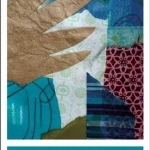
Haiti Glass
Book
Winner of the 2015 PEN Oakland Josephine Miles Literary Award In her debut collection of verse and...

Track My Steps - Pedometer Activity Tracker
Health & Fitness and Productivity
App
Track My Steps - Pedometer Activity Tracker automatically and accurately tracks your daily walk and...

Basic Yoga For Beginners - Home Workout Guide For Beginners, Weight Loss & Flexibility
Catalogs and Health & Fitness
App
Basic Yoga For...
Mothergamer (1616 KP) rated the PC version of The Witcher III: Wild Hunt in Video Games
Apr 3, 2019
I was excited to play Witcher 3 Complete Edition as I had never played it before, yet I had read all the books about the Witcher Geralt and liked them a lot. I have not played the first two games, but they are both on my to play list. Geralt's world is interesting filled with complex characters, fantastic monsters, and great storytelling. All I can say is that I have a ton of games to play and some things get backlogged. I still have a stack of PS3 games to play and of course, I'll be playing the remastered Skyrim for PS4 when it comes out and that's another game I haven't played yet, but for this moment let's discuss how much I loved Witcher 3.
Yes, I loved Witcher 3. I stayed up way too late many a night playing this game because I was having so much fun running around killing monsters and helping people in need. My vision of Geralt was someone who did his best to do the right thing and that sometimes that meant siding with the occasional monster because there were times when humans were the real monsters. The story drew me in right away and these were characters and lore I was familiar with so I was thrilled to explore the entire world in the game. Truly, I unlocked entire maps because I just had to know what everything was. The areas that were too high a level for me at the time I made a note of where they were and came back later. I think it's great when a game makes exploration fun and it definitely helped having Geralt's horse, Roach to help that exploration go a bit faster.
The environments in Witcher 3 are amazing. I would find myself stopping and just looking around at the scenery whether it was roaming through a forest or wandering the streets of a city. The attention to minute details was quite impressive. The gameplay is great. The gaming controls are fine tuned to make battles fun without feeling frustrating and the camera angles are spot on which made a terrific gaming experience for me. The music for Witcher 3 is beautiful. My favorite music was for the area of Skellige. Skellige was also my favorite place to explore because it was so pretty there with all the wild flowers and forests. I genuinely liked the people there too because many of them did not treat Geralt with complete suspicion or call him a freak the way they did in cities like Novigrad. They respected him and what he did; the fact that he was a Witcher and had cat eyes didn't really come up much. I felt that showed a lot of variety in the thinking of the people in the different areas.
There are mini games to play as well. I enjoyed the horse races because those were fun and worth the time and effort. They gave some great rewards such as saddle bags that increased my inventory space and saddles that increased my horse's stamina and speed. Then there's a card game called Gwent which you can play with various people ranging from innkeepers to some of Geralt's friends. I really tried with Gwent. It was a bit confusing for me and I found myself looking up videos on YouTube just to try and get the gist of it, and it helped a bit. However, a huge shout out to my friend Danny for giving a simple explanation of how it worked and the best strategy to winning because that helped more. I mainly just wanted to finish the Gwent side quests I had and I managed to do that. After that, I no longer bothered playing Gwent. It just wasn't my thing, but I will say graphics wise it was a well designed mini game and while it was a tad frustrating for me, I understood why many of my friends enjoyed it. There's also fist fights tournaments (think Fight Club) that Geralt can participate in. I aced the heck out of those and won all those prize coin purses. My favorite fight was the Rock Troll because it was interesting and I got to learn his name at the end; a reward for winning the fight.
Level grinding was not a chore for me in the game because there were so many quests and Witcher contracts which involves hunting specific monsters or investigating things that might involve monsters. These offer good experience and a lot of money for Geralt. There are times when the leveling feels a bit uneven because sometimes the main story quests give more experience than a few of the contracts and side quests. It's not a big deal, but it is noticeable. The skills menu for unlocking Geralt's Witcher abilities and upgrading them is easy to navigate and quite user friendly. My favorite skill was an upgrade of the Axii skill known as Puppet which could make enemies fight each other. The cutscenes and voice acting are superb; while the loading times are practically seamless which made me very happy.
First of all, I don't like anyone telling me what to do. Ask my parents. There was a time when I was told to eat my vegetables when I was a kid and instead of doing that, I stealthily put them under my chair and claimed my plate was clean because I wanted to go play with my friends. Hey, I was four. What the heck did I know about being a mastermind? My parents bought it for two minutes until they discovered it and yes, it was wrong of me to think that I didn't have to listen and tried to fool my parents but this gives you an idea about how long I've been like this. Don't get me wrong, if you just have a conversation with me and we have a healthy discussion I will listen to what you have to say. What I don't respond well to is comments like, "You should NOT be playing that game because of this, that, or the other thing." Ultimately I like to decide and think for myself and I think everyone should be able to decide for themselves whether or not they want to play a game, read a book, or see a movie.
While playing Witcher 3 two things came up about this which were I should not play the game because there are no people of color in it and that it was sexist to women. I honestly did not know there was a huge hullabaloo about these things when the game was first released because honestly I get busy with things going on in my life and I tend to just choose games that pique my interest. I thought the game looked interesting, so I bought it. That's really all there was to it.
As for the second aspect regarding the game being sexist towards women, I just find myself wondering where this comes from. There are several, I repeat, several strong female characters in the lore of Witcher and in the game. How is any of it sexist towards women? Look, I understand not liking all the boobies in the brothels and the sexual scenes in the game. It's not for everyone and some folks are just not down for it. It never bothered me and some of those sex scenes have some amusing humor in them. The argument that Geralt feels no emotions so it's sexist towards women is utter crap. If a person takes the time to actually read any of the books, read the lore, or actually tried to play the game they would know that Geralt can not express emotions on his face because of all the mutations that Witchers go through. Geralt actually feels very deeply especially when it comes to people like Yennefer who is his true love, Ciri who is like a daughter to him, and of course Vesemir who is a mentor/father figure to him. The fact that he can't physically express those emotions due to him essentially being a mutant shouldn't count against him.
The issues with things like Ciri being called a bitch by men or Yennefer being called a whore; those are things that happen in the real world and they sure as hell happened way too often throughout history. Part of the storytelling of many artistic things is that it finds a creative way to discuss real world issues and inform you hey, this kind of thing happens open your eyes. The part I loved is that these women did not need saving. They handled it themselves. The man who called Ciri a bitch? She broke his nose and she stuck up for herself. Yennefer handled the man who called her a whore and she held her own very well. These are not wilting flowers. These are strong, intelligent, and brave women in the story and I was thrilled that a fantasy game had them. Honestly, as soon as I heard the sentence, "Feminist Frequency said..." I felt my eyes rolling because this is such a stretch. I'm not saying that they're not entitled to their opinion because they are, but I did not see any evidence of that in the game at all and I disagree.
Games are meant to be fun and for me Witcher 3: The Wild Hunt was so much fun and one of the best games I've ever played. The story, the open exploration, and the diverse characters were amazing and I enjoyed it immensely. Now, I'm going to play through again on new game plus because the completionist in me wants to get all the different endings and the game is worth playing multiple times if one wishes.
Yes, I loved Witcher 3. I stayed up way too late many a night playing this game because I was having so much fun running around killing monsters and helping people in need. My vision of Geralt was someone who did his best to do the right thing and that sometimes that meant siding with the occasional monster because there were times when humans were the real monsters. The story drew me in right away and these were characters and lore I was familiar with so I was thrilled to explore the entire world in the game. Truly, I unlocked entire maps because I just had to know what everything was. The areas that were too high a level for me at the time I made a note of where they were and came back later. I think it's great when a game makes exploration fun and it definitely helped having Geralt's horse, Roach to help that exploration go a bit faster.
The environments in Witcher 3 are amazing. I would find myself stopping and just looking around at the scenery whether it was roaming through a forest or wandering the streets of a city. The attention to minute details was quite impressive. The gameplay is great. The gaming controls are fine tuned to make battles fun without feeling frustrating and the camera angles are spot on which made a terrific gaming experience for me. The music for Witcher 3 is beautiful. My favorite music was for the area of Skellige. Skellige was also my favorite place to explore because it was so pretty there with all the wild flowers and forests. I genuinely liked the people there too because many of them did not treat Geralt with complete suspicion or call him a freak the way they did in cities like Novigrad. They respected him and what he did; the fact that he was a Witcher and had cat eyes didn't really come up much. I felt that showed a lot of variety in the thinking of the people in the different areas.
There are mini games to play as well. I enjoyed the horse races because those were fun and worth the time and effort. They gave some great rewards such as saddle bags that increased my inventory space and saddles that increased my horse's stamina and speed. Then there's a card game called Gwent which you can play with various people ranging from innkeepers to some of Geralt's friends. I really tried with Gwent. It was a bit confusing for me and I found myself looking up videos on YouTube just to try and get the gist of it, and it helped a bit. However, a huge shout out to my friend Danny for giving a simple explanation of how it worked and the best strategy to winning because that helped more. I mainly just wanted to finish the Gwent side quests I had and I managed to do that. After that, I no longer bothered playing Gwent. It just wasn't my thing, but I will say graphics wise it was a well designed mini game and while it was a tad frustrating for me, I understood why many of my friends enjoyed it. There's also fist fights tournaments (think Fight Club) that Geralt can participate in. I aced the heck out of those and won all those prize coin purses. My favorite fight was the Rock Troll because it was interesting and I got to learn his name at the end; a reward for winning the fight.
Level grinding was not a chore for me in the game because there were so many quests and Witcher contracts which involves hunting specific monsters or investigating things that might involve monsters. These offer good experience and a lot of money for Geralt. There are times when the leveling feels a bit uneven because sometimes the main story quests give more experience than a few of the contracts and side quests. It's not a big deal, but it is noticeable. The skills menu for unlocking Geralt's Witcher abilities and upgrading them is easy to navigate and quite user friendly. My favorite skill was an upgrade of the Axii skill known as Puppet which could make enemies fight each other. The cutscenes and voice acting are superb; while the loading times are practically seamless which made me very happy.
First of all, I don't like anyone telling me what to do. Ask my parents. There was a time when I was told to eat my vegetables when I was a kid and instead of doing that, I stealthily put them under my chair and claimed my plate was clean because I wanted to go play with my friends. Hey, I was four. What the heck did I know about being a mastermind? My parents bought it for two minutes until they discovered it and yes, it was wrong of me to think that I didn't have to listen and tried to fool my parents but this gives you an idea about how long I've been like this. Don't get me wrong, if you just have a conversation with me and we have a healthy discussion I will listen to what you have to say. What I don't respond well to is comments like, "You should NOT be playing that game because of this, that, or the other thing." Ultimately I like to decide and think for myself and I think everyone should be able to decide for themselves whether or not they want to play a game, read a book, or see a movie.
While playing Witcher 3 two things came up about this which were I should not play the game because there are no people of color in it and that it was sexist to women. I honestly did not know there was a huge hullabaloo about these things when the game was first released because honestly I get busy with things going on in my life and I tend to just choose games that pique my interest. I thought the game looked interesting, so I bought it. That's really all there was to it.
As for the second aspect regarding the game being sexist towards women, I just find myself wondering where this comes from. There are several, I repeat, several strong female characters in the lore of Witcher and in the game. How is any of it sexist towards women? Look, I understand not liking all the boobies in the brothels and the sexual scenes in the game. It's not for everyone and some folks are just not down for it. It never bothered me and some of those sex scenes have some amusing humor in them. The argument that Geralt feels no emotions so it's sexist towards women is utter crap. If a person takes the time to actually read any of the books, read the lore, or actually tried to play the game they would know that Geralt can not express emotions on his face because of all the mutations that Witchers go through. Geralt actually feels very deeply especially when it comes to people like Yennefer who is his true love, Ciri who is like a daughter to him, and of course Vesemir who is a mentor/father figure to him. The fact that he can't physically express those emotions due to him essentially being a mutant shouldn't count against him.
The issues with things like Ciri being called a bitch by men or Yennefer being called a whore; those are things that happen in the real world and they sure as hell happened way too often throughout history. Part of the storytelling of many artistic things is that it finds a creative way to discuss real world issues and inform you hey, this kind of thing happens open your eyes. The part I loved is that these women did not need saving. They handled it themselves. The man who called Ciri a bitch? She broke his nose and she stuck up for herself. Yennefer handled the man who called her a whore and she held her own very well. These are not wilting flowers. These are strong, intelligent, and brave women in the story and I was thrilled that a fantasy game had them. Honestly, as soon as I heard the sentence, "Feminist Frequency said..." I felt my eyes rolling because this is such a stretch. I'm not saying that they're not entitled to their opinion because they are, but I did not see any evidence of that in the game at all and I disagree.
Games are meant to be fun and for me Witcher 3: The Wild Hunt was so much fun and one of the best games I've ever played. The story, the open exploration, and the diverse characters were amazing and I enjoyed it immensely. Now, I'm going to play through again on new game plus because the completionist in me wants to get all the different endings and the game is worth playing multiple times if one wishes.
Bob Mann (459 KP) rated The Post (2017) in Movies
Sep 29, 2021
Landing the Hindenburg in a Thunderstorm.
What a combination: Streep, Hanks, Spielberg, Kaminski behind the camera, Williams behind the notes. What could possibly go wrong?
Nothing as it turns out. After, for me, the disappointment of “The BFG” here is Spielberg on firm ground and at the height of his game.
It’s 1971 and the New York Times is in trouble for publishing what became known as “The Pentagon Papers”: a damning account of multiple administration’s dodgy dealings around the Vietnam War, put together by Robert McNamara (Bruce Greenwood, “Star Trek: Into Darkness“) and meant for “posterity” – not for publication! Watching from the sidelines with frustration at their competitor’s scoop are the Washington Post’s editor Ben Bradlee (Tom Hanks, “Bridge of Spies“, “Inferno“) and the new owner Kay Graham (Meryl Streep, “Florence Foster Jenkins“, “Suffragette“). With immaculate timing, Graham is taking the paper public, so needs the newspaper embroiled in any sort of scandal like a hole in the head. But with the US First Amendment under pressure, will Graham and Bradlee put their business and their freedom at risk by publishing and being damned?
Bradlee (Tom Hanks) and Graham (Meryl Streep) in the Washington Post’s newsroom.
Both of the leads play characters that are quite strikingly out of character from their normal roles.
In a seamingly endless run of ‘kick-ass’ women in the movie driving seat, here I expected Streep to be in full “Iron Lady” mode, but in fact she starts the film as quite the opposite: nervous, timid, vascillating. For although the story is about “The Washington Post” and “The Pentagon Papers”, the real story is about Graham herself (Liz Hannah’s script is actually based on Graham’s autobiography). In many ways it’s about a woman, in a male world, overcoming her fear and finding her own voice. As has been demonstrated in many recent films (“Hidden Figures” for example) the working world for woman has changed so markedly since the 60’s and 70’s that it’s almost impossible to relate to these chavenistic attitudes. Graham is repeatedly downtrodden as “not good enough” by her underlings within earshot, and then thanks them “for their frankness”. When the women folk retire at dinner, to let the men-folk talk politics, Graham meekly goes with them. Even her father, for God’s sake, left the newspaper not to her but to her (now late) husband! It’s no surprise then that she is coming from a pretty low base of self-confidence, and her journey in the film – as expertly played by Streep – is an extraordinarily rousing one.
The real deal: Ben Bradlee and Kay Graham.
Hanks, normally the guy you’d most like to invite round for dinner (@tomhanks if you happen to be reading this sir, that’s a genuine invitation… we make a mean lasagne here!) also plays somewhat outside of his normal character here. As Bradlee, he is snappy, brusque and businesslike. Although I don’t think he could ever quite match the irascibility of the character’s portrayal by Jason Robards in the classic “All the President’s Men” – who could? – its a character with real screen presence.
The similarities with Alan J Pakula’s 1976 classic Watergate movie – one of my personal favourites – don’t stop there. The same sets that were once populated by Redford and Hoffman are gloriously reproduced with Spielberg and Janusz Kaminski delivering great tracking shots through the newsroom. (Watch out for Sacha Spielberg – daughter of Stephen and Kate Capshaw – who also turns up there delivering a package).
The scoop revealed: Odenkirk, Hanks and David Cross get the low-down.
The supporting cast includes Sarah Paulson (so memorable in “The Trial of O.J. Simpson”) as Bradlee’s wife Tony, Bradley Whitford (“The West Wing”, “Get Out“) and Tracy Letts (“The Big Short“) as two of Graham’s board advisors and Jesse Plemons (“The Program“, “Bridge of Spies“) as the lead legal advisor. Particularly impressive though is Bob Odenkirk (“Breaking Bad”) as Ben Bagdikian, Bradlee’s lead investigative reporter on the case: all stress, loose change and paranoia in his dealings with the leaky Daniel Ellsberg (Matthew Rhys).
Bagdikian (Bob Odenkirk) ordering a drink for himself and his travelling companion.
In a memorable piece of casting Richard Nixon is played by…. Richard Nixon. Although a silluohetted Curzon Dobell stalks the Oval office, the ex-president’s original phone recordings are played on the soundtrack. (There, I knew those recordings would be useful for something… thank heavens he kept them all!)
The film also demonstrates in fascinating style the newsprint business of yesteryear. When I click a button on my PC and a beautifully laser-printed page streams out of my Epson printer, it still seems like witchcraft to me! But it is extraordinary to think that newspapers in those days were put together by typesetters manually building up the pages from embossed metal letters laboriously slotted into a frame. Brilliantly evocative.
Ellsberg (Matthew Rhys) takes a risk.
If Spielberg has a fault, it is one of sentimentality – something that is pointed out in Susan Lacy’s superb HBO documentary on Spielberg (something I have yet to write a review on, but if you like Spielberg you should definitely seek out). Here he falls into that trap again, with an unnecessary bedroom scene between Graham and her daughter tipping the screenplay into mawkishness. It’s unnecessary since we don’t need the points raised rammed down our throats again. It’s something repeated in a rather bizarre final scene with Graham walking down the steps of the supreme court with admiring woman – only woman – watching her. These irritations tarnish for me what could have been a top-rated film.
But the movie is an impressive watch and older viewers, and anyone interested in American political history will, I think, love it. The film, especially with its nice epilogue, did make me immediately want to come home and put “All the President’s Men” on again… which is never a bad thing. Highly recommended.
Nothing as it turns out. After, for me, the disappointment of “The BFG” here is Spielberg on firm ground and at the height of his game.
It’s 1971 and the New York Times is in trouble for publishing what became known as “The Pentagon Papers”: a damning account of multiple administration’s dodgy dealings around the Vietnam War, put together by Robert McNamara (Bruce Greenwood, “Star Trek: Into Darkness“) and meant for “posterity” – not for publication! Watching from the sidelines with frustration at their competitor’s scoop are the Washington Post’s editor Ben Bradlee (Tom Hanks, “Bridge of Spies“, “Inferno“) and the new owner Kay Graham (Meryl Streep, “Florence Foster Jenkins“, “Suffragette“). With immaculate timing, Graham is taking the paper public, so needs the newspaper embroiled in any sort of scandal like a hole in the head. But with the US First Amendment under pressure, will Graham and Bradlee put their business and their freedom at risk by publishing and being damned?
Bradlee (Tom Hanks) and Graham (Meryl Streep) in the Washington Post’s newsroom.
Both of the leads play characters that are quite strikingly out of character from their normal roles.
In a seamingly endless run of ‘kick-ass’ women in the movie driving seat, here I expected Streep to be in full “Iron Lady” mode, but in fact she starts the film as quite the opposite: nervous, timid, vascillating. For although the story is about “The Washington Post” and “The Pentagon Papers”, the real story is about Graham herself (Liz Hannah’s script is actually based on Graham’s autobiography). In many ways it’s about a woman, in a male world, overcoming her fear and finding her own voice. As has been demonstrated in many recent films (“Hidden Figures” for example) the working world for woman has changed so markedly since the 60’s and 70’s that it’s almost impossible to relate to these chavenistic attitudes. Graham is repeatedly downtrodden as “not good enough” by her underlings within earshot, and then thanks them “for their frankness”. When the women folk retire at dinner, to let the men-folk talk politics, Graham meekly goes with them. Even her father, for God’s sake, left the newspaper not to her but to her (now late) husband! It’s no surprise then that she is coming from a pretty low base of self-confidence, and her journey in the film – as expertly played by Streep – is an extraordinarily rousing one.
The real deal: Ben Bradlee and Kay Graham.
Hanks, normally the guy you’d most like to invite round for dinner (@tomhanks if you happen to be reading this sir, that’s a genuine invitation… we make a mean lasagne here!) also plays somewhat outside of his normal character here. As Bradlee, he is snappy, brusque and businesslike. Although I don’t think he could ever quite match the irascibility of the character’s portrayal by Jason Robards in the classic “All the President’s Men” – who could? – its a character with real screen presence.
The similarities with Alan J Pakula’s 1976 classic Watergate movie – one of my personal favourites – don’t stop there. The same sets that were once populated by Redford and Hoffman are gloriously reproduced with Spielberg and Janusz Kaminski delivering great tracking shots through the newsroom. (Watch out for Sacha Spielberg – daughter of Stephen and Kate Capshaw – who also turns up there delivering a package).
The scoop revealed: Odenkirk, Hanks and David Cross get the low-down.
The supporting cast includes Sarah Paulson (so memorable in “The Trial of O.J. Simpson”) as Bradlee’s wife Tony, Bradley Whitford (“The West Wing”, “Get Out“) and Tracy Letts (“The Big Short“) as two of Graham’s board advisors and Jesse Plemons (“The Program“, “Bridge of Spies“) as the lead legal advisor. Particularly impressive though is Bob Odenkirk (“Breaking Bad”) as Ben Bagdikian, Bradlee’s lead investigative reporter on the case: all stress, loose change and paranoia in his dealings with the leaky Daniel Ellsberg (Matthew Rhys).
Bagdikian (Bob Odenkirk) ordering a drink for himself and his travelling companion.
In a memorable piece of casting Richard Nixon is played by…. Richard Nixon. Although a silluohetted Curzon Dobell stalks the Oval office, the ex-president’s original phone recordings are played on the soundtrack. (There, I knew those recordings would be useful for something… thank heavens he kept them all!)
The film also demonstrates in fascinating style the newsprint business of yesteryear. When I click a button on my PC and a beautifully laser-printed page streams out of my Epson printer, it still seems like witchcraft to me! But it is extraordinary to think that newspapers in those days were put together by typesetters manually building up the pages from embossed metal letters laboriously slotted into a frame. Brilliantly evocative.
Ellsberg (Matthew Rhys) takes a risk.
If Spielberg has a fault, it is one of sentimentality – something that is pointed out in Susan Lacy’s superb HBO documentary on Spielberg (something I have yet to write a review on, but if you like Spielberg you should definitely seek out). Here he falls into that trap again, with an unnecessary bedroom scene between Graham and her daughter tipping the screenplay into mawkishness. It’s unnecessary since we don’t need the points raised rammed down our throats again. It’s something repeated in a rather bizarre final scene with Graham walking down the steps of the supreme court with admiring woman – only woman – watching her. These irritations tarnish for me what could have been a top-rated film.
But the movie is an impressive watch and older viewers, and anyone interested in American political history will, I think, love it. The film, especially with its nice epilogue, did make me immediately want to come home and put “All the President’s Men” on again… which is never a bad thing. Highly recommended.

